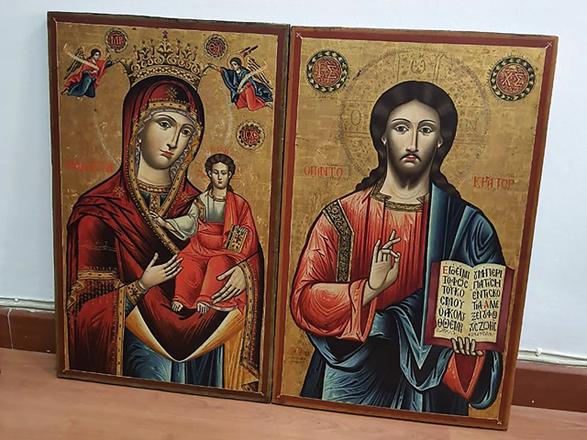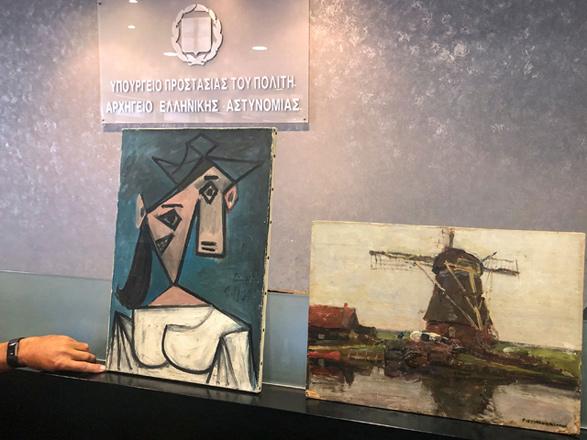You are here
Lebanon returns two stolen 18th-century icons to Greece
By AFP - Jan 19,2021 - Last updated at Jan 19,2021

A photo taken on Monday shows two 18th-century religious icons depicting Jesus and Mary that were stolen in Greece and were seized by Lebanese authorities during an auction in the capital Beirut (AFP photo)
BEIRUT — Lebanon handed back two 18th-century religious icons of Jesus and Mary to Greece on Tuesday after they were seized during an auction, a judicial source said.
The paintings were stolen from an exhibition in Athens in 2016, and Greece put out an international notice calling for their return.
Icons are Christian religious paintings, often of saints, and are viewed as sacred.
Lebanon has launched an investigation, but it is not clear who stole them, or how they were brought to the country.
"The person who bought the paintings at the auction in Lebanon was questioned," the source said, adding that the buyer was about to ship them to Germany "to sell them on at an international auction there".
The paintings were handed to the Greek ambassador in Beirut.
Greece has retrieved several other religious icons worth thousands of dollars in recent years.
In 2011, Greek officials blocked the sale of a dozen religious icons by two art galleries in Britain and The Netherlands after finding the items had been stolen years before.
The icons, which dated from before the 18th century and could have each fetched from $7,000 to $21,000, were stolen from unguarded monasteries and churches in the sparsely-populated Epirus region of north-western Greece.
In 2008, Britain returned to Greece a 14th-century icon stolen from a Greek Orthodox monastery 30 years earlier, and found in the hands of a London-based collector.
Related Articles
ATHENS — Greece on Tuesday said it had recovered a Picasso painting personally donated by the Spanish master to the Greek people, almost a d
NABK, Syria — A Syrian desert monastery that was once a hub for interfaith dialogue, attracting tens of thousands, has reopened to visitors
NABK, Syria — A Syrian desert monastery that was once a hub for interfaith dialogue, attracting tens of thousands, has reopened to visitors

















